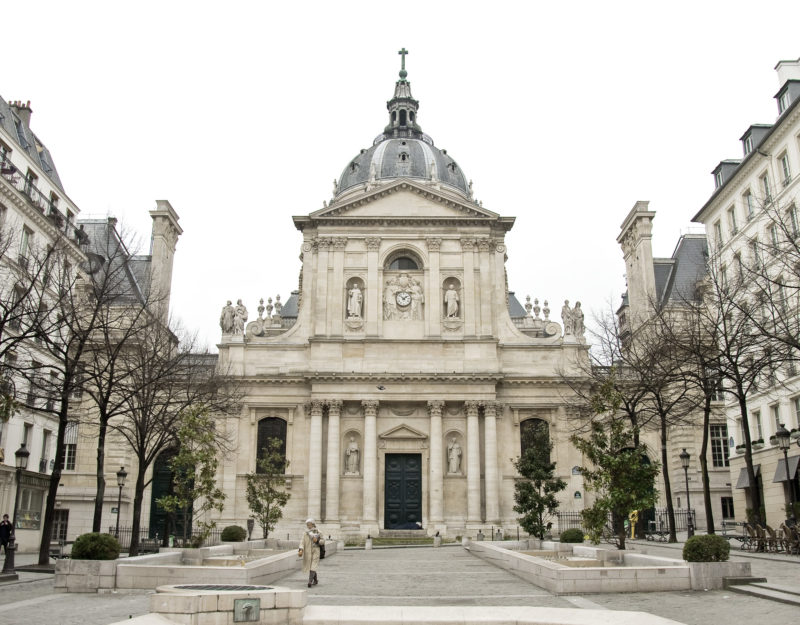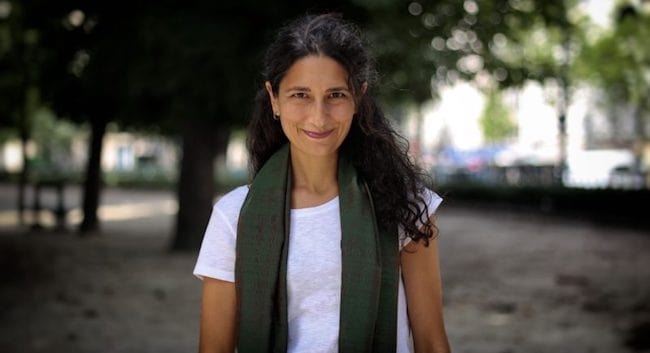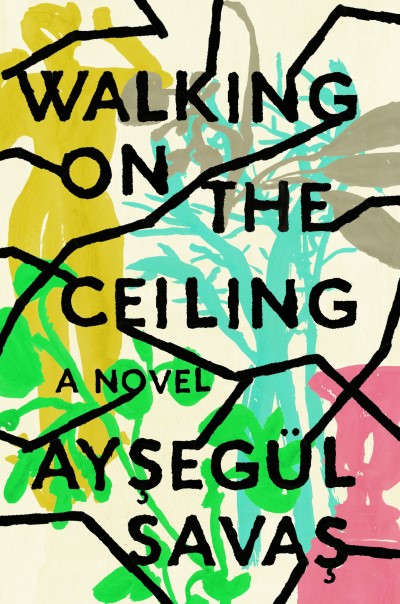Book Review: “Walking on the Ceiling, A Novel” by Aysegül Savas
- SUBSCRIBE
- ALREADY SUBSCRIBED?
BECOME A BONJOUR PARIS MEMBER
Gain full access to our collection of over 5,000 articles and bring the City of Light into your life. Just 60 USD per year.
Find out why you should become a member here.
Sign in
Fill in your credentials below.
Ayesegül Savas grew up in Turkey and Denmark. Her work has been published in the New Yorker, Granta, Guernica, and the Paris Review Daily, among other places. She received her MFA from the University of San Francisco: she now lives in Paris and teaches nonfiction writing and literature at the Sorbonne’s school of journalism and communications (CELSA). She is currently working on Hedgehog in the Fog, a collection of essays that explores imagination, inspiration, and language. Walking on the Ceiling, reviewed here, is her debut novel.
Walking on the Ceiling is the story of Nurunisa (Nunu), a young woman who has come to Paris ostensibly to study at the Sorbonne, but really to find herself. Initially a bit lost and aimless, her life in Paris begins to take shape when she forms a friendship with an older man, a British writer whose novels about Istanbul she has admired. They develop an email correspondence, and go on long walks together: she shares stories of her life as a child in Istanbul with him, and he listens, eagerly and appreciatively.

Sorbonne school, March 10, 2013. Taken by Andy Walker. Image © flickr
This is the main framework of the novel, but within this framework a series of memories and reflections are elegantly and intricately interwoven: Nunu’s story, past and present, is worked into the narrative through the memories she shares with the writer (who is always referred to simply as M); her own musings about her past, present, and future; and her descriptions of the conversations she and M share, sometimes via email, sometimes on long walks around the city, occasionally during meals together.
This could be a confusing structure, but it is not. From the very beginning of the story, the reader is led seamlessly, gently, as if by the hand, into the interior life of both the narrator (the present-day Nunu, the aspiring young writer in Paris), and young Nunu, the child whose memories she is relating.

Eiffel Tower, Paris France. Taken by Chris Karidis. Image © Unsplash
The memories of Nunu’s childhood in Istanbul are interspersed with memories of the years she spent studying in London, and people she knew there as well as a few other characters she meets in Paris. But throughout the novel, the most important characters are members of her family in Istanbul, M, Nunu, and Istanbul itself. Istanbul is a constant presence, sometimes because of Nunu’s preoccupation with it, as well as her fervent desire to break free of her life there: sometimes through her descriptions of the city, past and present. Toward the end a mournful, almost elegiac, tone of loss takes hold. This made me want to know more about Istanbul, and what is happening there now.

The Blue Mosque, Istanbul, Turkey. Taken by Adli Wahid. Image © Unsplash
The descriptions of Paris are intricately, accurately, and beautifully rendered. Those who live here or who know Paris well will enjoy recognizing the locations described as Nunu and M stroll about the city, deep in conversation. Often they talk about writing, and their conversations can shed light on the delicate complexity of the artistic process for those who have not experienced it.
He asked me to tell him more about my novel, if I didn’t mind.
“I know how frail these ideas can be, how the landscape you are cautiously approaching can disappear behind shadows with a single false step.”
I was grateful to him for including me so swiftly into his community of writers, and all the sensitivities of his profession, of which I was mostly unaware.
This is also a story about the difficulty, often the near futility, of the writer’s attempt to successfully close in on what it is he or she is trying to do. At one point, M says this:
“For me…stories are fickle. I must often resign myself to the knowledge that they have their own logic. I am almost powerless in shaping a story because, like people, they do not submit to my expectations…The difficulty…is to observe them from afar, in their own worlds. If I can manage to do this…I am rewarded with sights of an extraordinary beauty. I think that these sights are certainly not the work of my hazy imagination, but things that the mind has noticed and stored away. With care and patience, they reemerge in writing…sometimes, if I’m delicate enough, I may reach over to hold one and commit such a story to paper. But there are many which escape my grasp…At other times I’m simply too deaf to hear them.”
Another theme has to do with list-making. I have always felt that the importance and value of lists in storytelling is, in general, insufficiently recognized and appreciated. In Walking on the Ceiling it is given the attention it deserves.

List making. Taken by Glenn Carstens-Peters. Image © Unsplash
In the company of women, remembering simply meant listing. During their kitchen conversations, my grandmother and her sisters would suddenly recall a woman called Sidika, who had lived downstairs, and they would begin listing all the neighbors who had lived in their building…
They listed their favorite porcelain, crystal, silver, and cloths. They remembered that the organza silk from Cyprus had supplied not just Saniye’s high-waisted skirt, but my grandmother’s shirt and matching purse as well…They listed the games they played and their variations: marbles could be played with three pieces or five; blindman’s buff with two blindfolds was called “You or Me”…
When the world was listed item by item, one-time events became routines, a story of the way things had always been. This, too, was the pleasure of the inventory, the shortest memories drawn out to stand in for the regularity of everyday lives.
Savas’s prose is exquisite and spare, rising to the level of poetry, and is characterized by a rare kind of clear and straightforward emotional honesty. Through it all there is a delicately rendered, but growing and poignant sense of the kind of regret one can feel about not having loved well enough; about not having been able to understand sufficiently the pain of those we are closest to, blinded as we so often are by our own pain.

Poetry. Taken by Thought Catalog. Image © Unspalsh
Walking on the Ceiling is a story suffused with the love of reading, of writing, of storytelling; of the beauty and power of language itself, of words. It is also about the kind of love that can be felt for those beautiful, world-class cities that inspire our imagination, feed our collective memory, nurture our hopes and dreams, even as they sometimes also disappoint our expectations or thwart those same dreams. It is a wonderful novel, and I very much look forward to reading more of the work of this extraordinarily sensitive and talented writer.
Purchase the book on Amazon below:
Lead photo credit : Author Ayşegül Savas. Image © Maks Ovsjanikov






REPLY